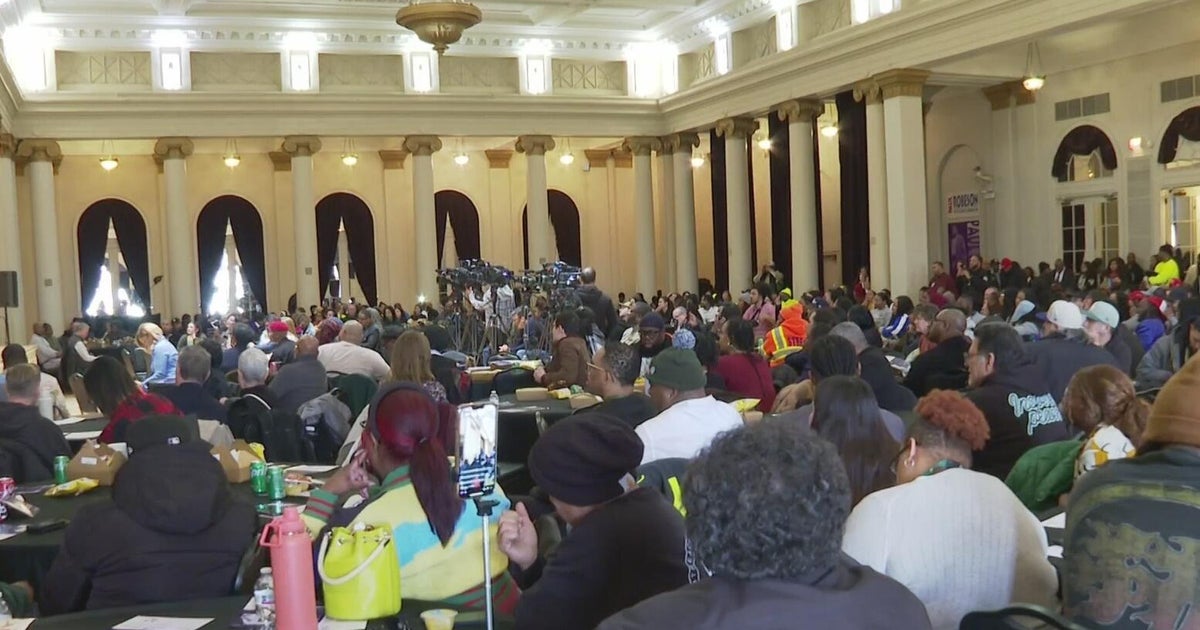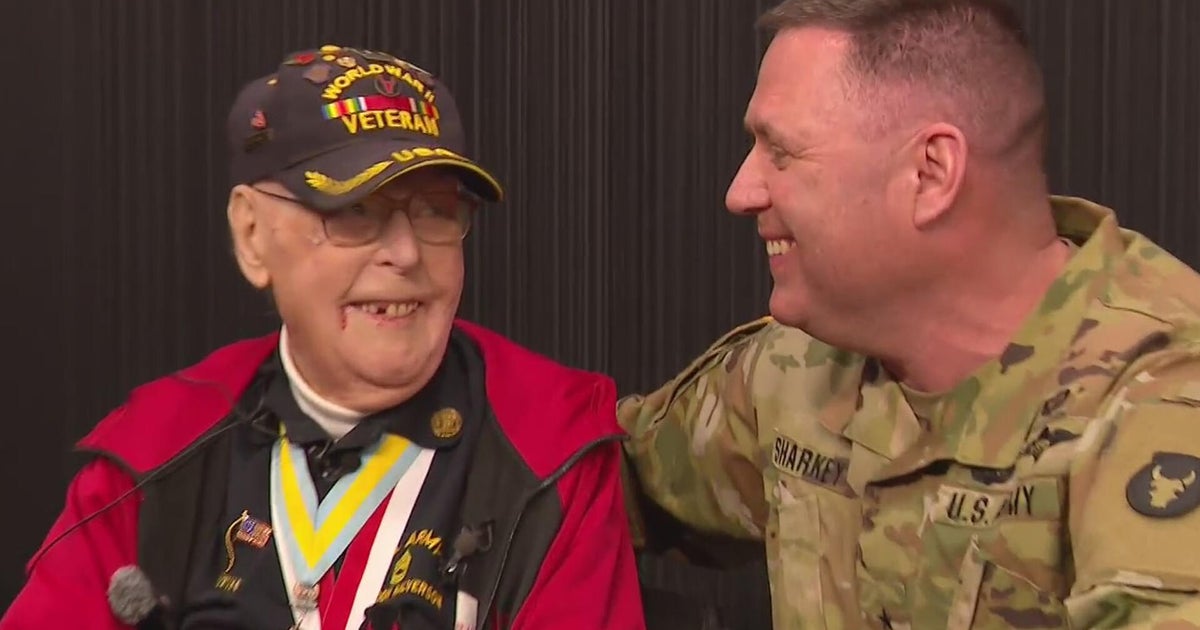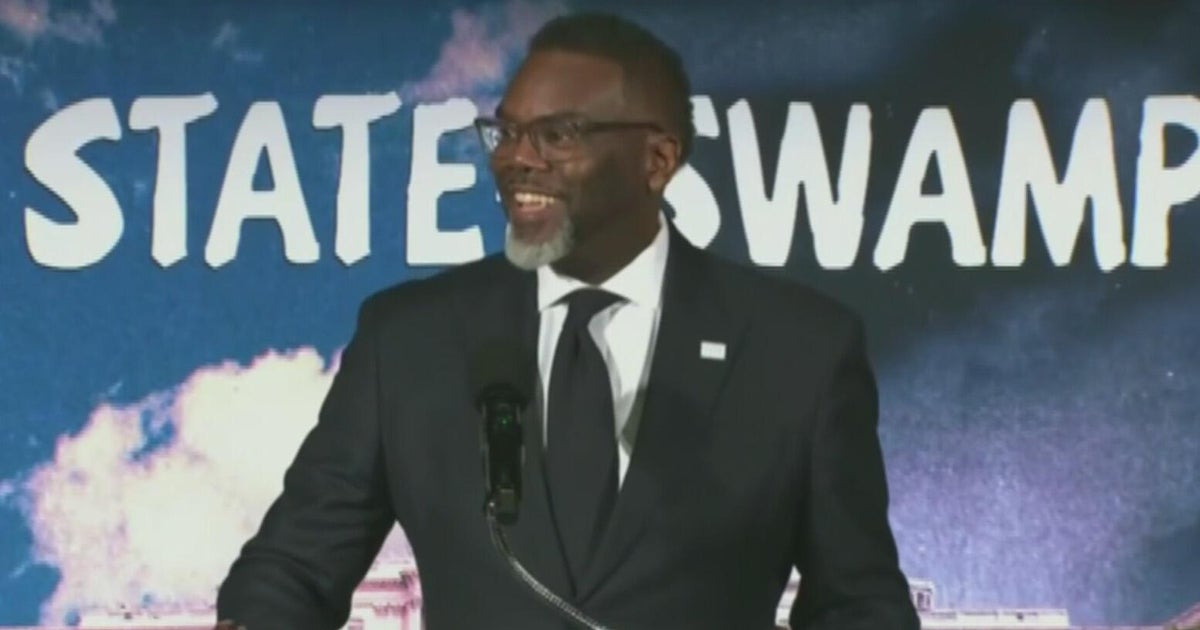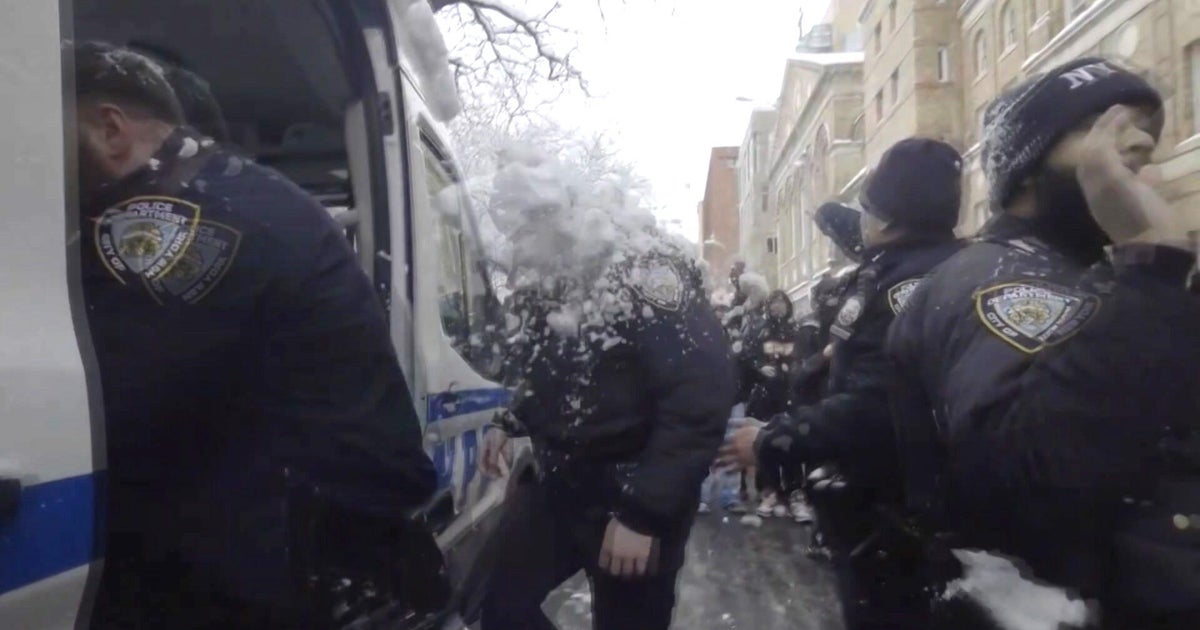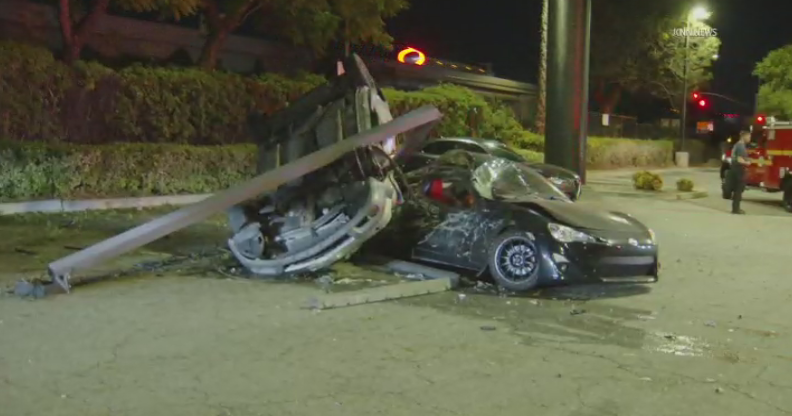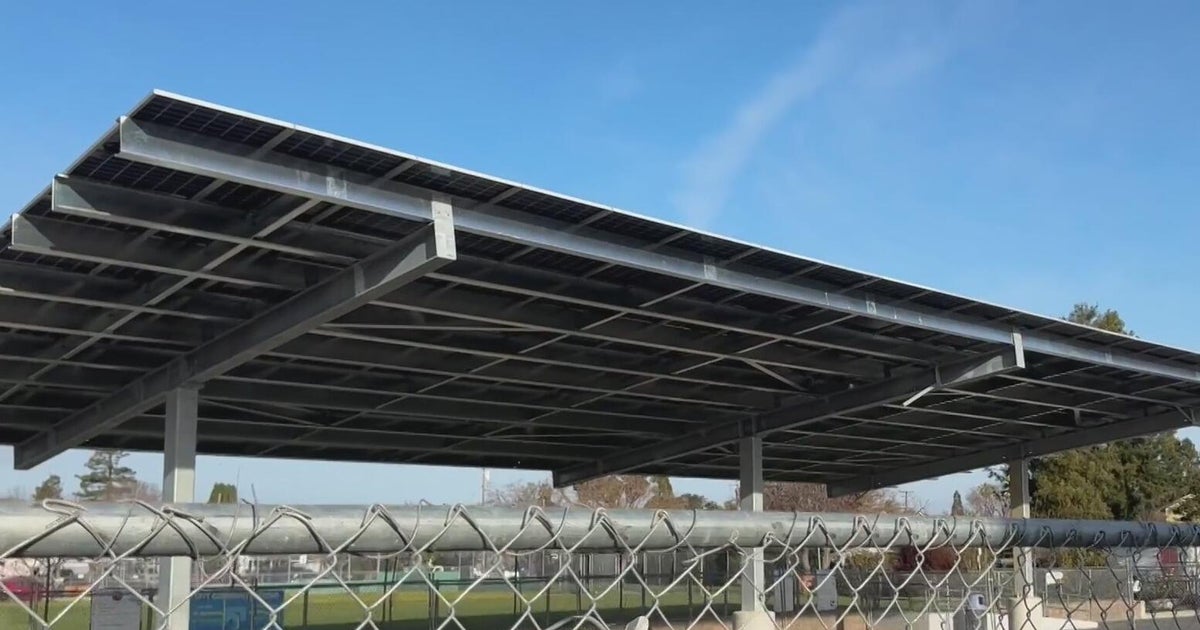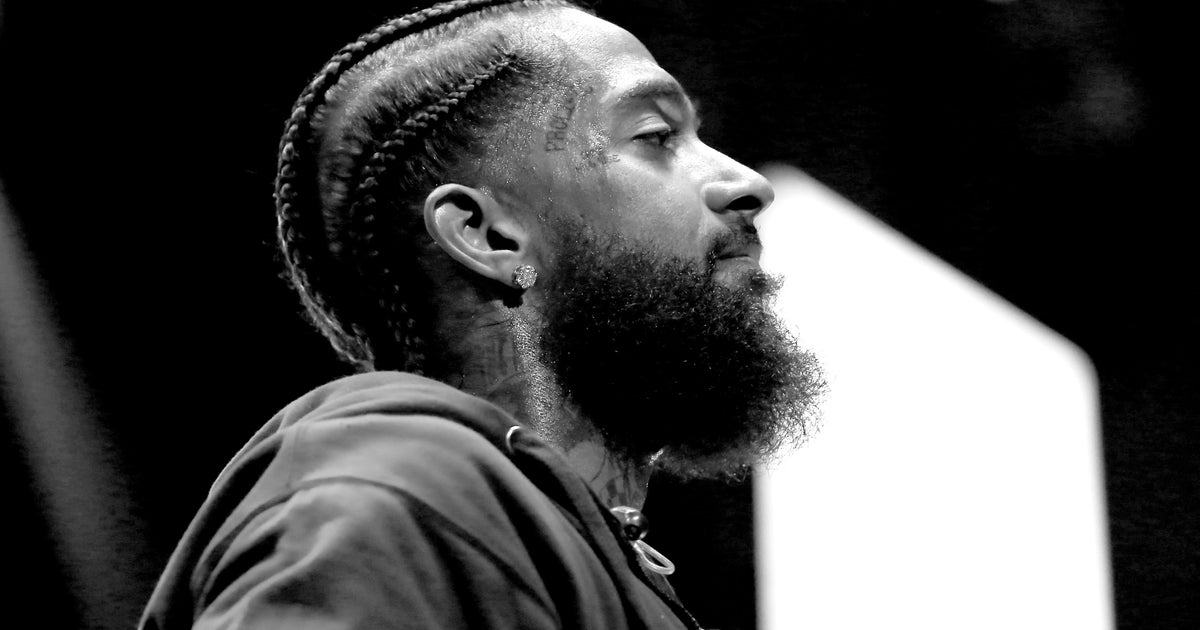Harold Washington Remembered As 90th Birthday Approaches
CHICAGO (CBS) -- The late Mayor Harold Washington would have turned 90 years old this coming Sunday, and Chicagoans are remembering his legacy.
Thursday is also the 29th anniversary of Mayor Washington's election to office as the city's first African-American mayor.
A memorial birthday bash is planned for Thursday night from 6 p.m. to 10 p.m. at Captain Hard Time's Dining and Josephine's Cooking Restaurant, 436 E. 79th St.
Also in observance of Mayor Washington's birthday, the Chicago Public Library also held a program Thursday examining how the Chicago Cultural Plan was initiated during the Washington administration. Washington's Cultural Plan included many initiatives that were later undertaken, including the renovation of Navy Pier and the establishment of a theatre district.
Washington's Rise To Prominence
Washington was born and raised on the city's South Side, and spent his formative years sharpening the political and leadership skills that carried him into the mayor's office – even though he never actually ran for public office until the age of 43.
He graduated from DuSable High School, and served overseas during World War II before going on to Roosevelt University. He then attended Northwestern University Law School, where he was the only African-American student in the class of 1952.
"In my first meeting with him and all meetings, really, at the Law School, the outstanding characteristic was friendliness and a very comfortable person to be with," classmate Allen Schwartz told CBS 2's Harry Porterfield in 1983.
Washington served three terms in the Illinois House of Representatives and one in the Illinois Senate. He ran and lost in the 1977 special mayoral election after Mayor Richard J. Daley died.
Washington was elected to the U.S. House of Representatives in 1980, and reelected in 1982, as calls mounted for him to mount a campaign for mayor by African-American voters who were dissatisfied with Mayor Jane Byrne's track record.
Initially, Rep. Washington was less than enthusiastic about running for mayor. He said he would run only if $1 million were raised in campaign funds, and most importantly, 50,000 new voters were registered.
But the goal was met with little trouble. Beginning in the fall of 1982, new African-American voters registered first by the thousands, then by the tens of thousands. And ultimately, 130,000 new voters had been registered. Finally, Washington declared his candidacy, pitted against Byrne and then-Cook County State's Attorney Richard M. Daley in the Democratic mayoral primary.
Washington won 36 percent of the vote, compared to 34 percent for Byrne and 30 percent for Daley. The nominee declared victory in the wee hours of the morning on Feb. 23, 1983.
But when Washington won the primary, 90 percent of white voters in Chicago, including ward bosses, turned their back on the Democratic Party. The atmosphere of the city became divisive and hostile in ways that would be difficult to imagine nearly a quarter century later.
Byrne briefly tried a write-in campaign, but gave it up for lack of support. Thus, Washington was pitted against Bernard Epton, a relatively unknown Republican Illinois State representative. It became a campaign of slurs, accusations, charges and counter-charges, and a contest dominated by the issue of race.
Both candidates had said they hoped race would not be a key issue, but some of Epton's supporters made certain that it was. Hate literature was distributed in neighborhoods on the Northwest and Southwest sides, in some cases by police officers. A slogan in one of Epton's campaign commercials was "Epton for Mayor, Before It's Too Late."
The most infamous incident in the campaign came when Washington was stumping with then-Presidential candidate Walter Mondale at St. Pascal Roman Catholic Church on West Irving Park Road. Epton supporters gathered in a vitriolic mob, holding signs and screaming at the candidates. Racist, threatening graffiti was discovered scrawled on the side of the church.
But the contest that was to result in the election of the city's first African-American mayor also drew national and international spotlight to Chicago for the first time in more than a decade. Reporters from Canada, Britain, Sweden and Japan, among other countries, were present to witness the momentous occasion.
Ultimately, on Election Day 1983, voter turnout was estimated at 88 percent an hour before the polls closed. Washington won the election by 3.3 percent, and was declared the winner around midnight. A coalition of African-Americans, Latinos and predominantly white "lakefront liberals" living from Rogers Park south to the Streeterville joined together to push Washington over the edge.
A crowd that had grown to call him just by his first name shouted, "We want Harold!" "We want Harold!" as they waited for Washington to take the podium.
"You want Harold? Well, here's Harold!" he replied jubilantly upon arriving.
Washington's Time In Office
When he took office, Washington immediately agreed to the Shakman decree in U.S. District Court, which for all but a handful of positions prohibited political hiring or firing of city employees.
He also drafted an executive order on freedom of information for city government, so reporters could probe the deep, dark recesses of City Hall. He severely limited the amount of money that city contractors could contribute to a political fund, and helped open the budget-making process.
In addition, he ensured that city services would be distributed evenly to every ward and neighborhood, as he had promised in his campaign.
But Washington was fighting Chicago's old and still-powerful political system, and that system was not about to back down easily.
Ald. Ed Vrdolyak (10th) led a group of 29 aldermen that were allied to the old Democratic machine, compared with 21 who sided with the mayor. The "Vrdolyak 29" blocked Washington's legislative and appointments. Shouting matches broke out on the council floor.
The deadlock in the City Council continued to make headlines, and overshadow everything else that happened in Chicago municipal government at the time, and the effects were felt by Chicago residents.
"The 29 not only blocked his appointments, but never brought them up for consideration. They blocked most of his legislative initiatives, and dedicated an enormous energy to looking for ways to embarrass him; thwart him," host Ira Glass said on the public radio program "This American Life." "It was mayhem; a battle so divisive and chaotic that it sustained the animosity and suspicion between black Chicago and white Chicago for years."
Meanwhile, Washington blocked the Vrdolyak 29's initiatives by veto, which the opposing group of aldermen were one vote short of overriding. The conflict between Washington and Vrdolyak led a national publication to call the city "Beirut on the Lake."
The mayor eventually won Council Wars. Ward boundaries were changed by court order, and special elections were held in certain wards in 1986. The 25-25 split between supporters and opponents of Washington's policies allowed Washington to pursue his agenda unimpeded.
A year later, Washington was reelected, defeating former Mayor Byrne in the February primary, and winning 53 percent of the vote in the general election against Republican Donald Haider, and Vrdolyak, who had left the City Council and was running with the Illinois Solidarity Party. The hostility and racial tension that had divided the city four years earlier was not seen.
Washington is remembered by many for the lasting change his reform plans did achieve. He set up requirements for minority- and women-owned contractors that were to do business with the city, began the modernization plan at O'Hare International Airport, and worked toward the construction of a new central public library, which ultimately bore his name. He also established the first Committee on Gay and Lesbian Issues, and was the first mayor to headline a gay rights rally.
What CBS 2's Walter Jacobson characterized as perhaps the mayor's proudest achievement came late in his second term. That was Chicago's first ethics ordinance, setting forth a code of conduct for city employees and officials.
"Across the county and around the world, we've made it clear -- there's a new Spirit of Chicago, building on the old," Mayor Washington said in his 1987 inaugural address. "Chicago is not simply the 'City that Works.' The word is out -- Chicago works together."
A City In Shock In Mourning
On Nov. 25, 1987, Washington appeared at a groundbreaking at 46th Street and Woodlawn Avenue, raising a shovel with the local alderman, Tim Evans (4th) and other officials. A news conference had followed the event.
"This morning, when the mayor was at the groundbreaking at 46th and Woodlawn, he looked OK; he was joking, and also serious – his same jovial self," said Robert Lucas of the Kenwood-Oakland Community Organizaton. "He appeared to be all right to me; I've known the man since 1963, and I didn't see any real difference this morning."
Afterward, Washington returned to City Hall, where he worked with his secretary and conducted the day's business. Around 10:58 a.m., Washington was talking with his press secretary, Alton Miller, when he collapsed at his desk.
The mayor was rushed to Northwestern Memorial Hospital. His heart had stopped and his lungs had ceased to work, and he was unconscious as Miller rode the ambulance with him.
For two hours behind the doors of the hospital emergency room, friends gathered – praying, consoling, and hoping the mayor would pull through the devastating cardiac arrest.
But the doctors – even with their state-of-the-art equipment in one of Chicago's most modern hospitals – could not get the heart to resume pumping. He had been placed on life support in hopes that a "dramatic" form of CPR would reactivate his heart and brain, but that never happened, said attending physician John Sanders. At 1:36 p.m., Nov. 25, 1987, Mayor Harold Washington passed away. He was 65.
For the seven days following Washington's death, whispered rumors of would-be successors filled newspaper columns and television screens. Washington supporters huddled and mapped their strategy for holding onto the power of the mayor's office, while his adversaries plotted one last time to grab it for themselves.
It all culminated in one of the wildest City Council meetings ever held in Chicago.
The day after the mayor died, Thanksgiving Day 1987, a tearful mayor's chief of staff Ernest Barefield announced the mayor's memorial services, while Ald. David Orr (49th), now Cook County Clerk, agreed to serve until an acting mayor was selected by the aldermen.
The public memorial services for the mayor followed on Friday, Nov. 27.
By Saturday, Nov. 28, battle lines were being lain within City Council chambers. Those who had supported Washington wanted Ald. Timothy Evans (4th) to take over as acting mayor, while other aldermen wanted Ald, Eugene Sawyer (6th). Both aldermen were African-American, but Evans' backers argued that those who were pushing Sawyer represented the Democratic machine and the 29 aldermen who had fought Mayor Washington in the Council Wars.
Finally, Sawyer won, receiving 29 votes to Evans' 19. He was sworn in around 4 a.m. Dec. 2. He in turn lost a bid for reelection to retired Mayor Richard M. Daley in a 1989 special election.
Mayor Washington is still regarded as a hero to people across Chicago, including many in neighborhoods that had largely opposed him.
And President Barack Obama points out in his memoir, Dreams from My Father, that he first came to Chicago as a community organizer in the 1980s because he was inspired by Mayor Washington. Comparisons between Obama and Washington were often heard as Obama ran for office.
"When (Obama) says there is no black America and there is no white America, only the United States of America, you can hear the echoes of Harold Washington saying he would be fairer than fair," Ira Glass says on "This American Life."
